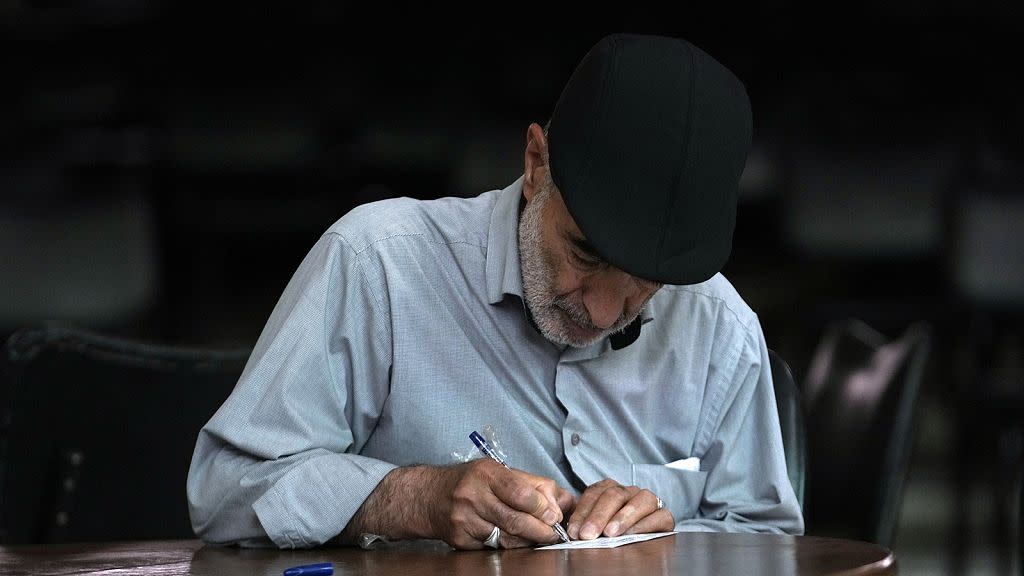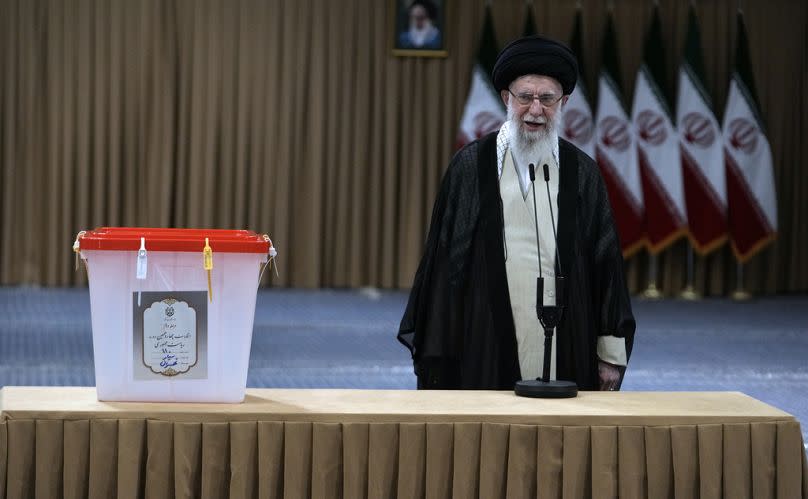Iranians choose between hardliner and reformist in presidential election runoff

Iranian voters face a choice between the hard-line former nuclear negotiator Saeed Jalili and Masoud Pezeshkian, a heart surgeon and longtime MP who has allied himself with moderates and reformists within Iran's Shiite theocracy.
After years of economic struggle, mass protests and tensions, public apathy has become pervasive in the Islamic Republic.
No candidate received more than 50% of the vote in the initial round of voting on 28 June, forcing the runoff. The 39.9% turnout was also the lowest ever in an Iranian election.
There have been calls for a boycott, including from imprisoned Nobel Peace Prize laureate Narges Mohammadi.
Khamenei has the last word
Iran’s 85-year-old Supreme Leader Ali Khamenei has the final say on all matters of state, but presidents can bend the country’s policies toward confrontation or negotiation with the West.
As has been the case since the 1979 Islamic Revolution, those calling for radical change have been barred from the ballot, while the vote itself will have no oversight from internationally recognised monitors.
The voting comes as wider tensions have gripped the Middle East over the Gaza Strip. Militia groups that Tehran arms in the region — such as the Lebanese Hezbollah and Yemen’s Houthi rebels — are engaged in the fighting and have escalated their attacks.

Meanwhile, Iran continues to enrich uranium at near weapons-grade levels and maintains a stockpile large enough to build, should it choose to do so several nuclear weapons.
Its 2015 nuclear deal with world powers, reached by officials now backing Pezeshkian, collapsed in 2018 after then-President Donald Trump unilaterally withdrew America from the accord. Since then, hard-liners have taken power at all levels of government.
Khamenei cast one of the election’s first votes from his residence, and television cameras and photographers captured him dropping the ballot into the box.
Why is Masoud Pezeshkian (most likely to be) Iran's next president?
Iranian presidential election runoff: Here's what you need to know
Khamenei said that those who didn't vote last week weren't against the country's Shiite theocracy. "I have heard that people’s enthusiasm is more than before", Khamenei said. "God willing, people vote and choose the best candidate."
State television broadcast images of modest lines at select polling places around the country.
How hard-line will Iran go if Jalili is elected?
More than 61 million Iranians over the age of 18 are eligible to vote, with about 18 million of them between 18 and 30. Elections are scheduled to end at 6 pm local time (4:30 pm CET). However, traditionally, this time gets extended until midnight to boost participation.
Friday's election marks just the second presidential runoff since 1979. The first came in 2005 when hard-liner Mahmoud Ahmadinejad bested former President Akbar Hashemi Rafsanjani. Under Ahmadinejad, Iran faced international sanctions over its advancing nuclear program, as well as the 2009 Green Movement protests and the crackdown that smashed them.
Pezeshkian's supporters have warned Jalili will bring a “Taliban-style" government into Tehran, while Jalili has criticized Pezeshkian for running a fear-mongering campaign.
The 63-year-old Raisi died in a helicopter crash on 19 May that also killed the country’s foreign minister and members of his entourage. He was seen as a protege of Khamenei and a potential successor as supreme leader.
How did Iran's president end up on half-century-old US-made helicopter?
'Butcher of Tehran': Who was Iranian President Ebrahim Raisi?
Still, many knew him for his involvement in the mass executions that Iran conducted in 1988 and for his role in the bloody crackdowns on dissent that followed protests over the 2022 death of Mahsa Amini, a young woman detained by police over allegedly improperly wearing the mandatory headscarf, or hijab.


